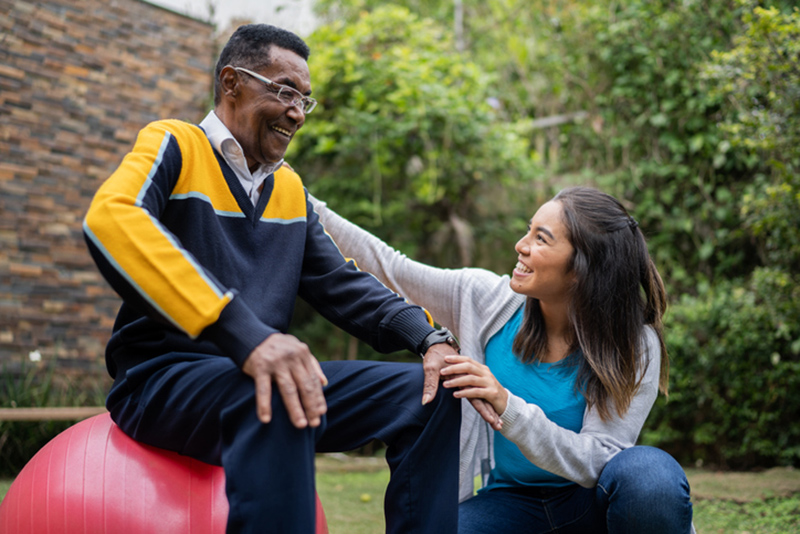
When a person is recovering from a stroke, home care services can provide exceptional support.
Going through a stroke is a scary, unexpected experience. The consequences can range from minimal to life-changing, but a very important factor is apparent: follow-up care is absolutely essential. Fortunately, a lot of this care can be provided in the comfort of home. If you’re caring for a loved one who has recently had a stroke, listed below are some of the ways you can help guarantee the most effective healing.
What Are the Best Strategies to Help a Person at Home After a Stroke?
An important initial step is talking with the person’s healthcare provider. Learn as much as possible about what may have brought on the stroke, what the expected outcome is, and what they recommend with respect to a treatment and recovery plan. It is also a good idea to ask the doctor for information and resources about strokes. Knowledge will be integral in your ability to offer the most effective help.
In addition, our home care professionals recommend the following tips:
- Start a diary. A plain notebook or electronic document is all you will need. Begin with a baseline entry regarding the person’s physical and emotional condition, any medicines being taken, sleeping and eating patterns, etc. It is not uncommon for new stroke symptoms to develop months after a stroke, and any changes must be brought to the doctor’s attention at the earliest opportunity.
- Provide reassurance. Following the doctor’s advised changes in lifestyle is not always easy. It is possible there will be a rehabilitation exercise plan to follow, as regular physical exercise is an effective recovery tool for both the brain and the body. Encourage the person to take part in these activities exactly as directed. Help facilitate compliance with the doctor’s orders by joining in and working out with the loved one.
- Refrain from taking control. You might be inclined to want to do as much as possible for the person, so they can rest rather than overextend themselves. Still, it’s necessary for the individual to accomplish as much independently as possible to be able to maximize recovery. Step in when absolutely necessary with just enough assistance to allow them to complete a hard task.
- Show patience. The recovery process post-stroke can take quite a bit of time, and there will likely be a few challenges to overcome. The person might also experience pseudobulbar affect, which causes sudden bouts of crying or laughing for no obvious reason. They may also experience depression, anxiety and fear of another stroke occurring, or grief. These sorts of emotional changes could be distressing for both of you, but treatment solutions are available to help.
Look after yourself. Caregiving for someone you love following a stroke can be emotionally and physically exhausting. Be sure to set appropriate boundaries to avoid caregiver stress and burnout. Engage the help of other loved ones, friends, or a professional caregiver to allow you time to step back to tend to your own health and wellbeing.
The Crucial Role of Home Care Post-Stroke
An in-home caregiver should be an integral part of someone’s recovery after a stroke. Absolute Companion Care, a trusted provider of personal home care in Towson, MD and the surrounding areas, offers a variety of specialized services including:
- Providing fall prevention and other home modification suggestions for improved safety and independence
- Offering transport and accompaniment to doctors’ appointments and procedures
- Running errands, such as picking up groceries and prescriptions
- Preparing healthy meals according to any dietary restrictions
- Serving as a friendly companion for conversations, help with engaging in exercise programs, playing fun and mind-stimulating games, etc.
- Helping with personal hygiene needs
- And a lot more
Contact Absolute Companion Care, an award-winning provider of home care in Towson, MD and the surrounding communities at 410-357-9640. Discover how our fully trained and experienced caregivers can ensure a smoother recovery for someone you love following a stroke.
